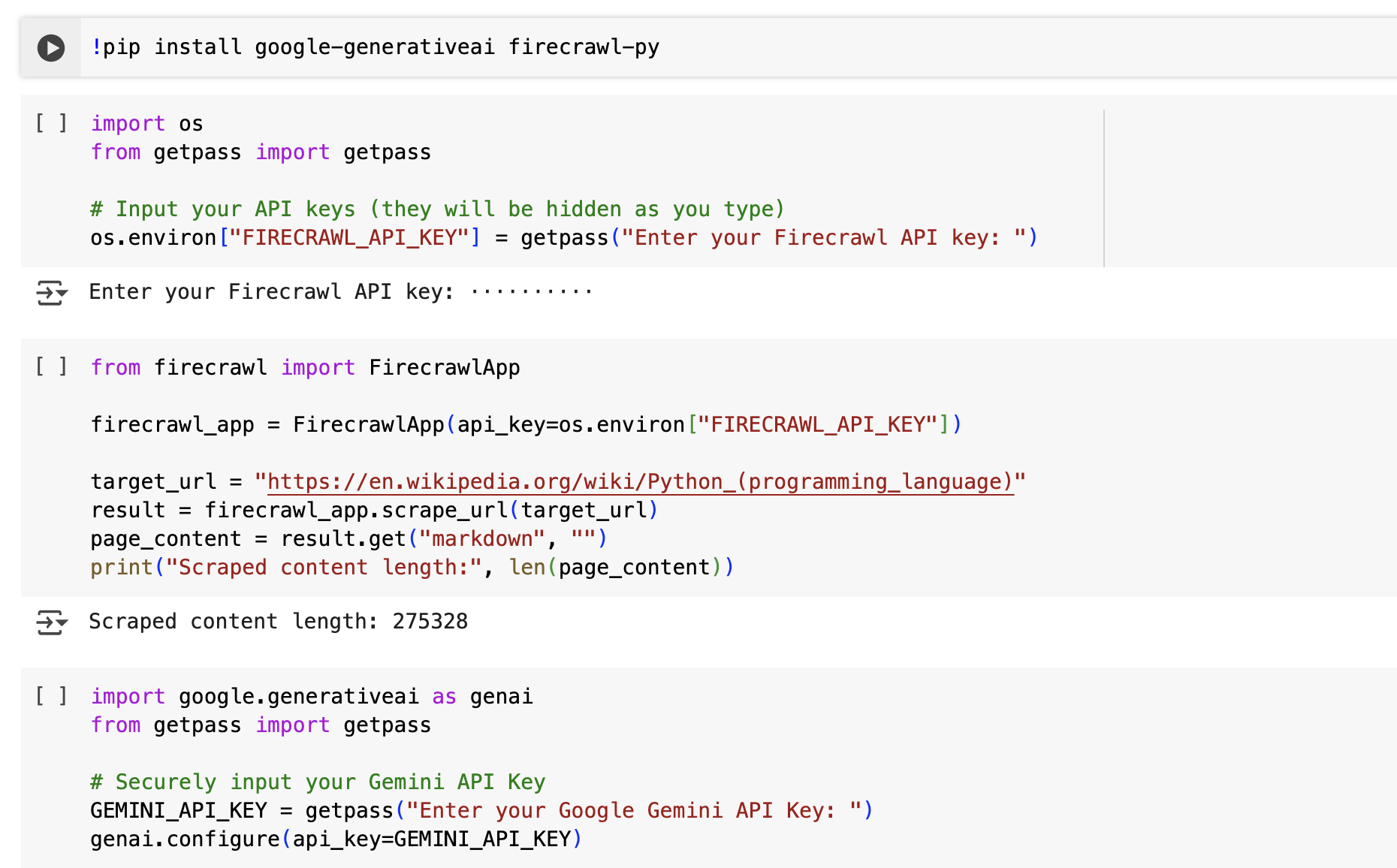
Introduction
The rapid growth of web content creates challenges in efficiently extracting and summarizing relevant information. This tutorial shows how to utilize Firecrawl for web scraping and process the extracted data using AI models like Google Gemini. By integrating these tools in Google Colab, we create a streamlined workflow that scrapes web pages, retrieves meaningful content, and generates concise summaries using advanced language models. This solution is ideal for automating research, extracting insights from articles, or building AI-powered applications.
Step 1: Install Required Libraries
First, we need to install two essential libraries: google-generativeai for accessing Google’s Gemini API, and firecrawl-py for web scraping content from web pages.
!pip install google-generativeai firecrawl-pyStep 2: Set Up Firecrawl API Key
Securely input your Firecrawl API key as an environment variable in Google Colab. This ensures confidentiality while allowing seamless authentication for Firecrawl’s web scraping functions.
import os
from getpass import getpass
os.environ["FIRECRAWL_API_KEY"] = getpass("Enter your Firecrawl API key: ")Step 3: Initialize Firecrawl and Scrape Content
Create an instance of FirecrawlApp using the stored API key. Then, scrape the content of a specified webpage and extract the data in Markdown format.
from firecrawl import FirecrawlApp
firecrawl_app = FirecrawlApp(api_key=os.environ["FIRECRAWL_API_KEY"])
target_url = "https://en.wikipedia.org/wiki/Python_(programming_language)"
result = firecrawl_app.scrape_url(target_url)
page_content = result.get("markdown", "")
print("Scraped content length:", len(page_content))Step 4: Configure Google Gemini API
Securely input your Google Gemini API key to set up the API client for text generation and summarization tasks.
import google.generativeai as genai
GEMINI_API_KEY = getpass("Enter your Google Gemini API Key: ")
genai.configure(api_key=GEMINI_API_KEY)Step 5: List Available Models
Verify which models are accessible with your API key by listing them. This helps in selecting the appropriate model for your tasks.
for model in genai.list_models():
print(model.name)Step 6: Generate Summary
Use the selected model to generate a summary of the scraped content, limiting the input text to 4,000 characters to comply with API constraints.
model = genai.GenerativeModel("gemini-1.5-pro")
response = model.generate_content(f"Summarize this:nn{page_content[:4000]}")
print("Summary:n", response.text)Conclusion
By combining Firecrawl and Google Gemini, we have established an automated pipeline to scrape web content and generate meaningful summaries efficiently. This tutorial demonstrates a flexible approach suitable for various applications, including NLP tasks, research automation, and content aggregation.
For further guidance on managing AI in business, feel free to contact us at hello@itinai.ru or connect with us on Telegram, Twitter, and LinkedIn.
“`




























